Choosing the Right Blockchain for Your NFT Marketplace: What You Need to Know
Introduction
The rise of NFTs (Non-Fungible Tokens) has opened up exciting new possibilities for businesses, artists, and creators, transforming the way digital assets are owned, traded, and monetized. Central to this revolution are NFT marketplaces, which allow users to buy, sell, and trade NFTs. However, the success of an NFT marketplace depends largely on the underlying blockchain it operates on. The blockchain you choose will impact everything from transaction fees and speed to scalability and security. In this article, we’ll explore what businesses need to know when choosing the right blockchain for their NFT marketplace, and how to match your technical and business requirements to the ideal blockchain platform.
What Is a Blockchain and Why Is It Important for NFTs?
Before diving into which blockchain to choose, it’s important to understand the role of blockchain in the NFT ecosystem. A blockchain is a decentralized, distributed ledger that records transactions across many computers. This ensures that the data is secure, transparent, and immutable, making it the perfect foundation for digital assets like NFTs. NFTs are unique digital assets that represent ownership or proof of authenticity for various items like artwork, collectibles, or even virtual real estate. These tokens are stored and traded on a blockchain, ensuring that each transaction is transparent, traceable, and tamper-proof. Choosing the right blockchain for your NFT marketplace is crucial because it will affect the overall user experience, security, and long-term scalability of your platform.
Key Factors to Consider When Choosing a Blockchain for Your NFT Marketplace
Selecting the right blockchain involves considering several key factors that will directly impact the success of your marketplace. Here are the main aspects to keep in mind:
Transaction Speed and Throughput
Transaction speed is crucial when operating an NFT marketplace. A slow blockchain can result in delays in minting, buying, and selling NFTs, leading to a poor user experience. Throughput, or the number of transactions a blockchain can handle per second (TPS), also plays a key role in performance. Blockchains with high throughput can handle large volumes of transactions efficiently, which is especially important for busy marketplaces with high user activity.
Gas Fees and Costs
Transaction costs, known as gas fees, can quickly add up on blockchain networks. High gas fees can drive users away, particularly those making frequent transactions. For an NFT marketplace, it’s essential to choose a blockchain that can handle low-cost transactions without sacrificing speed or security.
Scalability
As your NFT marketplace grows, scalability becomes crucial. Scalability refers to a blockchain's ability to handle an increasing number of transactions as demand grows. A blockchain that can scale effectively ensures that your marketplace can support more users without experiencing bottlenecks or increased fees.
Security and Decentralization
The security of your NFT marketplace is paramount. The blockchain should be robust enough to prevent attacks or fraud, ensuring that users’ assets are safe. Moreover, decentralization is an important feature of blockchains—ensuring that no central entity controls the platform and that the network is resistant to censorship.
Ecosystem and Community
The blockchain’s ecosystem is another important consideration. A vibrant, active community and a wide range of tools, libraries, and support services can make the development process easier and more efficient. Additionally, a blockchain with an established user base may attract more creators and buyers to your marketplace.
Launch a High-Performance NFT Platform
Request Your Custom Proposal

Popular Blockchains for NFT Marketplaces
Several blockchains are commonly used for building NFT marketplaces, each offering distinct advantages and trade-offs. Below are some of the most popular blockchain platforms for NFT development:
Ethereum
- Overview. Ethereum is the first and most widely used blockchain for NFTs. It is home to the ERC-721 and ERC-1155 token standards, which are the most common standards for creating NFTs.
- Pros: High security, large user base, a well-established ecosystem, and widespread adoption of NFTs. Ethereum also has a vast range of dApps and other services that integrate with NFTs.
- Cons: High gas fees, especially during periods of network congestion, and slower transaction speeds compared to newer blockchains.
Binance Smart Chain (BSC)
- Overview. Binance Smart Chain is a high-performance blockchain that supports NFTs and is known for its low transaction fees and fast speeds.
- Pros: Lower gas fees than Ethereum, faster transaction speeds, and a growing ecosystem of decentralized applications (dApps).
- Cons: BSC is more centralized than Ethereum, which raises concerns about security and censorship resistance.
Solana
- Overview. Solana is a high-speed, low-cost blockchain designed for scalability and performance. It has become a popular choice for NFT marketplaces looking for faster transaction times.
- Pros: Extremely fast transactions with very low fees, growing NFT ecosystem, and high throughput.
- Cons: Smaller developer community compared to Ethereum, and occasional network outages.
Flow
- Overview. Flow is a blockchain built specifically for NFTs, gaming, and digital collectibles. It is optimized for high throughput and low-cost transactions, making it a strong contender for NFT marketplaces.
- Pros: Purpose-built for NFTs, high scalability, and low transaction fees. It’s also the blockchain behind popular NFT projects like NBA Top Shot.
- Cons: Flow has a smaller ecosystem and developer base compared to Ethereum.
Polygon (formerly Matic)
- Overview: Polygon is a Layer 2 scaling solution for Ethereum, designed to provide faster transactions and lower fees while leveraging the security of Ethereum’s blockchain.
- Pros: Fast transactions, low fees, and seamless integration with Ethereum. It’s a popular choice for developers who want to enhance the scalability of their NFT marketplace.
- Cons: As a Layer 2 solution, it depends on Ethereum’s security and success, and it’s not fully decentralized.
How to Match Your Business Needs to the Right Blockchain
Now that you’ve considered the key factors and reviewed the most popular blockchains for NFT marketplaces, it’s time to match your business needs with the right blockchain. Here’s how:
Identifying Your Marketplace Requirements
- Transaction Volume. If you expect your NFT marketplace to have a high volume of transactions, you’ll need a blockchain with high throughput and low fees, such as Solana or Binance Smart Chain.
- Target Audience. Consider the type of users you want to attract. If your marketplace targets high-end collectors or art enthusiasts, Ethereum might be a good choice due to its established reputation.
- NFT Type. Different types of NFTs (art, gaming items, virtual real estate) may perform better on specific blockchains. For example, Flow is well-suited for large-scale collectibles like NBA Top Shot, while Polygon offers a cost-effective solution for games and smaller collectibles.
Considering the Trade-offs
Each blockchain has its pros and cons. For example, Ethereum offers the highest level of security and decentralization but comes with high gas fees, while Solana offers incredibly fast transactions and low fees but has a smaller ecosystem. Balancing speed, cost, security, and user experience is essential to finding the right blockchain for your marketplace.
Long-Term Vision
Consider how the blockchain will grow with your marketplace. A blockchain that supports scalability and has a robust ecosystem will be essential as your marketplace grows and attracts more users.
Technical Considerations for Blockchain Integration
When developing your NFT marketplace, it’s crucial to consider the technical requirements for integrating the blockchain of your choice:
- Smart contracts. Ensure that the blockchain supports smart contract standards like ERC-721 (for NFTs) or other similar standards on different blockchains (e.g., BEP-721 for Binance Smart Chain).
- Wallet integration. Your marketplace will need to integrate with popular wallets like MetaMask, Phantom, or Trust Wallet, which support the blockchain you choose.
- Security. Make sure the blockchain supports security features such as multi-signature wallets, user authentication, and transaction verification.
- Cross-chain compatibility. If you want your NFTs to be transferable across different blockchains, look for a blockchain that supports cross-chain interoperability.
The Future of NFT Marketplaces and Blockchain Evolution
As blockchain technology continues to evolve, so will NFT marketplaces. Emerging trends like multi-chain platforms, Layer 2 solutions, and cross-chain NFT interoperability are becoming increasingly important. Businesses should be prepared for these developments to future-proof their marketplace.
Conclusion: Choosing the Right Blockchain for Your NFT Marketplace
The blockchain you choose will shape the entire user experience, from transaction fees to security. Businesses must evaluate their needs, such as speed, scalability, security, and cost—before deciding which blockchain is right for their NFT marketplace.
Whether you’re looking to capitalize on the growing NFT trend or build a long-term digital marketplace, understanding the nuances of blockchain technology is crucial to your success.
Start Building Your Profitable NFT Marketplace
Get a Development Estimate

Comments (0)
Latest Posts
Learn how AURI, the automated AI call center, transforms business communication. Natural dialogue, CRM integration, omnichannel support, rapid deployment, and enterprise-grade security in one intelligent solution.
Learn how to build an online casino that scales: games, payment options, compliance basics, risk controls, and operational automation for growth.
Want to launch your own NFT marketplace?
Submit a request and get the best price and development timeline.




